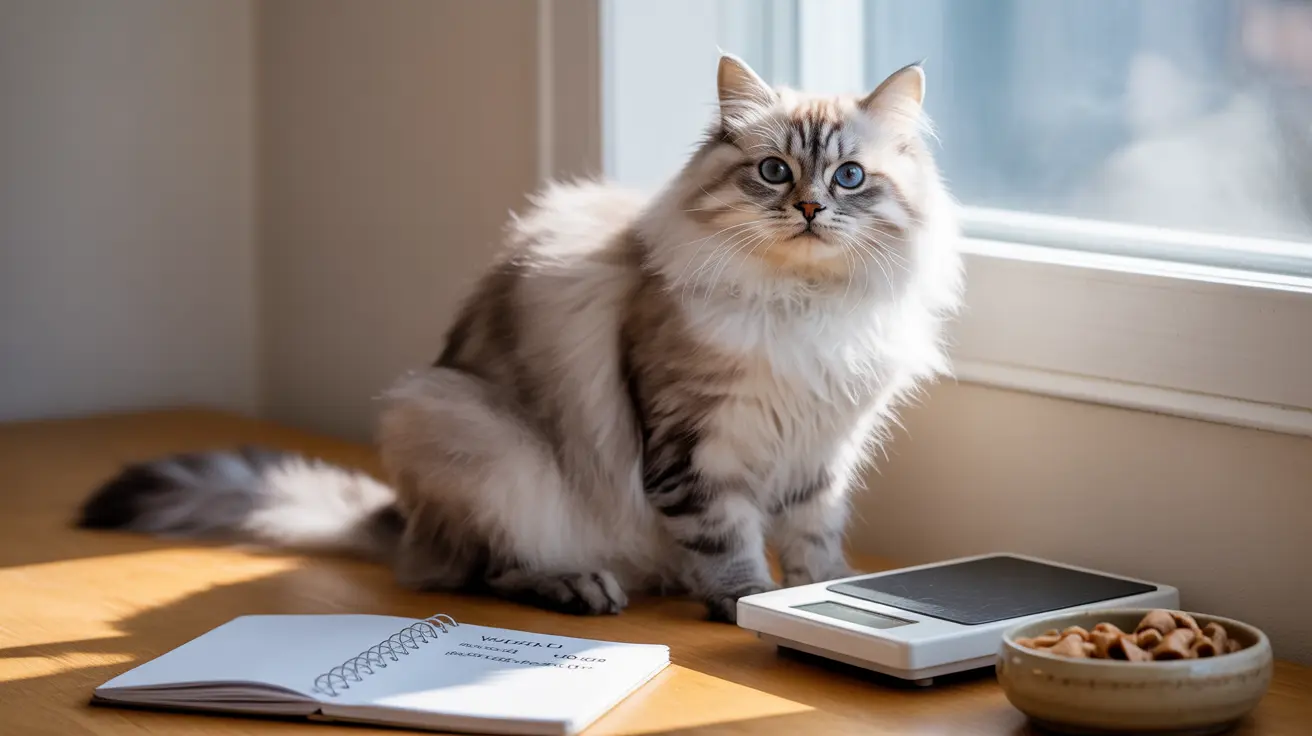When your cat starts losing weight while maintaining normal behavior and appetite, it can be both puzzling and concerning. This unexpected weight loss, even when your feline friend seems perfectly fine otherwise, often signals underlying health issues that require attention. Understanding the potential causes and knowing when to seek veterinary care is crucial for your cat's well-being.
In this comprehensive guide, we'll explore the various reasons behind unexplained weight loss in cats, help you identify warning signs, and provide guidance on when to seek professional help.
Common Medical Conditions Causing Weight Loss in Cats
Hyperthyroidism: A Common Culprit
Hyperthyroidism frequently affects cats over 10 years old and can cause weight loss despite increased appetite. This condition occurs when the thyroid gland becomes overactive, speeding up your cat's metabolism. Even though affected cats often eat more than usual, they continue losing weight due to their accelerated metabolic rate.
Diabetes Mellitus
Feline diabetes can cause weight loss even when cats maintain their regular eating habits. The condition prevents proper glucose utilization, leading to weight loss despite normal or increased food intake. Early detection and treatment can sometimes reverse Type 2 diabetes in cats.
Digestive System Issues and Weight Loss
Gastrointestinal Disorders
Various digestive system problems can cause weight loss in cats, including inflammatory bowel disease, food allergies, and parasites. These conditions may interfere with proper nutrient absorption, causing weight loss even when your cat appears to eat normally.
Dental Disease
Painful dental conditions can make eating uncomfortable for cats, leading to gradual weight loss. Even if your cat approaches food normally, they might not be eating as much as you think due to oral pain.
Monitoring Your Cat's Weight at Home
Regular weight monitoring is essential for catching potential health issues early. Use these strategies to track your cat's weight effectively:
- Weigh your cat regularly using the same scale
- Keep a log of their weight measurements
- Take monthly photos to track visible changes
- Monitor food intake and litter box habits
- Note any changes in behavior or energy levels
When to Seek Veterinary Care
Don't wait to contact your veterinarian if you notice:
- Rapid weight loss (more than 10% of body weight)
- Visible bone structure or muscle wasting
- Changes in drinking or urination habits
- Any additional symptoms developing
- Decreased activity or changes in behavior
Frequently Asked Questions
Why is my cat losing weight but still acting normal and eating well?
Several conditions can cause weight loss in cats despite normal behavior and appetite, including hyperthyroidism, diabetes, and digestive disorders. These conditions affect how your cat's body processes nutrients, leading to weight loss even when eating normally.
What health problems can cause sudden weight loss in cats with no other symptoms?
Common health issues include hyperthyroidism, diabetes, gastrointestinal disorders, dental disease, and kidney disease. Some cats may not show other symptoms initially, which is why regular vet check-ups are important.
How can I monitor my cat's weight safely at home to detect early weight loss?
Use a reliable pet scale monthly, take regular photos, and maintain a weight log. Consider getting a digital scale specifically designed for pets, and always weigh your cat at the same time of day for consistency.
When should I take my cat to the vet if it is losing weight but seems otherwise fine?
Schedule a veterinary appointment if you notice any unexplained weight loss, even if your cat seems healthy otherwise. Early intervention often leads to better treatment outcomes and can prevent serious complications.
Can hyperthyroidism or diabetes cause weight loss in cats that are still eating normally?
Yes, both conditions can cause weight loss despite normal or increased appetite. These metabolic disorders affect how the body processes nutrients, leading to weight loss even when cats maintain their regular eating habits.
Conclusion
While it may be tempting to wait and see if your cat's weight loss resolves on its own, unexplained weight loss always warrants veterinary attention. Early diagnosis and treatment can prevent more serious health complications and ensure your cat maintains a healthy weight and quality of life.






